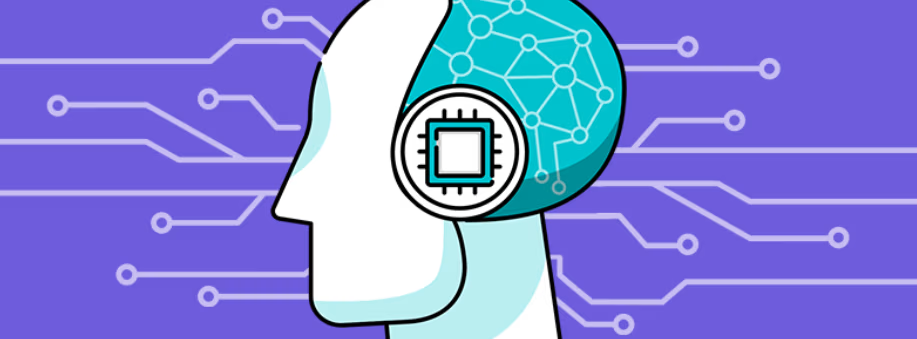Artificial intelligence has revolutionized how brands create, publish, and scale content. From blog writing and ad generation to email personalization, AI tools have made marketing faster, more efficient, and more data-driven.
But with this power comes responsibility. The rise of generative AI has introduced complex questions about authorship, authenticity, and accountability. Who owns AI-generated content? Can machines truly understand context, fairness, or truth?
This is where ethical AI content creation becomes essential. It’s not about rejecting AI—it’s about using it consciously, balancing innovation with integrity. In this article, we’ll explore what ethical AI means, the challenges it brings, and how brands can ensure that their content creation practices stay transparent, fair, and human-centered.

What Does Ethical AI Content Creation Mean?
At its core, ethical AI content creation is the responsible use of AI to create content that is accurate, fair, transparent, and free of bias. It’s about ensuring that AI remains a tool—not a replacement for human judgment, empathy, or creativity.
Ethical AI involves:
- Transparency: Clearly disclosing when AI assists in generating content.
- Accuracy: Fact-checking and validating AI outputs before publishing.
- Fairness: Avoiding biased or discriminatory narratives.
- Accountability: Ensuring a human is ultimately responsible for what’s published.
When done right, ethical AI empowers creators to produce high-quality, inclusive, and trustworthy content at scale—while maintaining their brand’s credibility and audience trust.
Why Ethics Matter in AI-Generated Content
Artificial intelligence now plays a major role in shaping the content we see every day — from social media posts and digital ads to long-form articles and even news coverage. While these tools make creation faster and more scalable, they also come with serious responsibilities. If not used carefully, AI can unintentionally spread misinformation, replicate human bias, or produce content that feels impersonal and untrustworthy.
That’s why ethical AI content creation is no longer optional — it’s essential. It ensures that technology enhances creativity rather than undermines it.
Here’s why ethics are more critical than ever:
1. Trust Is the New Currency
In the digital world, trust is everything. Readers and customers can easily tell when content feels generic, misleading, or disconnected from human intent. The more brands rely on AI, the greater the risk of losing authenticity — unless ethical practices are in place.
Transparent disclosure, accurate information, and consistent human oversight help maintain audience confidence. When people know that a brand uses AI responsibly, their trust deepens — turning casual readers into loyal advocates.
2. Regulations Are Coming
Governments and global institutions are increasingly enforcing rules on AI usage, data privacy, and algorithmic transparency. The European Union’s AI Act, for example, and similar frameworks worldwide will soon require brands to disclose how AI-generated content is created, sourced, and verified.
By adopting ethical practices early — like fact-checking, transparency, and proper disclosure — marketers can stay compliant and future-proof their strategies. It’s easier to adapt now than to scramble when regulations become mandatory.
3. Reputation Is Fragile
In marketing, reputation is built over years — but can be destroyed in minutes. A single unethical decision, like publishing inaccurate AI-generated claims or plagiarized content, can trigger public backlash and permanently damage brand credibility.
When audiences lose trust, recovery becomes costly and time-consuming. Ethical AI use protects your brand from these risks. It ensures that every post, article, or campaign reflects honesty, respect, and authenticity — values that consumers increasingly expect from modern brands.
Ethics as a Strategic Advantage
Ethics aren’t just a moral stance; they’re a competitive edge. As audiences become more aware of AI’s role in content creation, they’ll gravitate toward brands that demonstrate transparency and accountability.
When used ethically, AI doesn’t just produce faster results — it creates better relationships. It allows businesses to scale responsibly, balancing automation with human empathy. The future of marketing belongs to brands that can prove their innovation is built on trust.
Major Ethical Concerns in AI Content Creation
Artificial intelligence is transforming how we produce and consume content, but it also introduces new challenges that demand attention. From hidden bias in algorithms to questions about authorship, privacy, and transparency, AI-generated content can blur ethical boundaries if left unchecked.
Understanding these challenges is the first step toward ethical AI content creation — ensuring technology supports human creativity without compromising fairness, truth, or accountability.
1. Bias in AI Models
AI systems learn from vast datasets—many sourced from the internet. Since these datasets reflect human opinions and cultural norms, they often carry implicit biases.
For instance, an AI writing model may unconsciously reinforce gender stereotypes (“nurses are women,” “engineers are men”) or regional favoritism. When such content reaches audiences, it can perpetuate inequality and exclusion.
Solution
- Use AI tools that are trained on diverse and inclusive datasets.
- Incorporate human editors to detect and remove biased language.
- Routinely audit content for fairness and representation.
2. Misinformation and Hallucination
AI models sometimes “hallucinate” — generating inaccurate information with full confidence. These errors can include false statistics, non-existent studies, or outdated facts.
If brands publish such content unchecked, it can quickly erode credibility.
Solution
Always review AI-generated text with human editors. Use fact-checking tools, verify claims, and update outdated data before publishing. AI should support research, not replace it.
3. Transparency and Disclosure
Many brands use AI without disclosing it, creating an illusion of full human authorship. This lack of transparency can mislead audiences and spark ethical questions about authorship and intent.
Solution
Disclose AI involvement honestly. Simple statements like “This article was created with AI assistance and reviewed by our editorial team” enhance trust rather than diminish it.
4. Intellectual Property and Plagiarism
AI tools generate content by analyzing patterns in existing data. While outputs are typically original, overlaps with pre-existing works can occur—raising copyright concerns.
Solution
Run all AI-generated material through plagiarism detection tools. Rework sentences, cite credible sources, and ensure the final output aligns with your brand’s tone and originality standards.
5. Data Privacy and Consent
Some AI tools scrape publicly available information without consent. This raises serious privacy and compliance risks, especially under GDPR and similar regulations.
Solution
Choose tools that prioritize data transparency and user consent. Platforms like Smartli use ethically sourced datasets and ensure full compliance with privacy laws, making them safe choices for brands and creators.
Best Practices for Ethical AI Content Creation
Ethical AI content creation doesn’t happen by accident — it’s the result of conscious systems, policies, and decision-making. Every brand using AI has a responsibility to ensure that the technology supports creativity without compromising on truth, fairness, or authenticity.
Below are five essential best practices to help you use AI responsibly and build a sustainable, transparent, and trustworthy content strategy.
1. Maintain Human Oversight
AI is excellent at generating ideas and drafts, but it still lacks emotional intelligence, intuition, and cultural understanding. That’s why human oversight must always remain at the heart of the content creation process.
Human editors are essential to evaluate the tone, accuracy, and context of AI-generated text. They can catch nuances — like cultural sensitivity or subtle emotional tone — that an algorithm might miss.
Example: An AI might write a product description that’s technically correct but unintentionally insensitive to certain audiences. A human reviewer ensures that the language is appropriate, inclusive, and aligned with the brand’s values.
Takeaway: Use AI to enhance your creativity, not to replace it. Combining automation with human judgment ensures your messaging remains thoughtful, empathetic, and relevant.
2. Prioritize Transparency
Openness is one of the most powerful ways to build credibility with your audience. People appreciate honesty — and that includes being upfront about AI’s role in your content creation process.
Disclosing that AI contributed to a piece of content doesn’t reduce its value; instead, it shows confidence, integrity, and respect for your readers.
Tip: Add a simple disclosure such as:
“This article was created with AI assistance and reviewed by Smartli’s editorial team.”
This type of transparency demonstrates that while AI helped streamline creation, humans ensured its accuracy, tone, and trustworthiness. In the age of automation, honesty isn’t optional — it’s a differentiator.
3. Build Diverse Training Data
Bias is one of the most common ethical challenges in AI-generated content. It occurs when the data used to train AI models is limited or unrepresentative — often reflecting the same social, gender, or cultural biases found online.
To promote inclusivity and fairness, brands and AI providers must use diverse, representative datasets. The broader the perspectives in your data, the more globally relevant and balanced the output will be.
Action Points
- Use datasets that represent multiple languages, regions, age groups, and cultural viewpoints.
- Partner with AI platforms like Smartli that actively prioritize diversity and fairness in model development.
- Regularly review your AI outputs for bias and continuously refine data inputs.
Building diversity into your AI systems doesn’t just prevent errors — it makes your content more human, relatable, and respectful of your audience’s diversity.
4. Verify and Cite Sources
Even the most advanced AI tools can generate inaccurate or unverified information. Because AI models predict patterns rather than understand truth, they may confidently produce false claims or misquote data.
That’s why verifying facts and citing credible sources remains one of the cornerstones of ethical AI content creation. Always check any statistics, names, or claims that AI provides before publishing.
Example: If an AI model writes, “80% of marketers use automation tools to manage campaigns,” don’t take it at face value. Search for the original study or report that validates this figure — or remove it if none exists.
Pro Tip: Cross-check every AI-generated fact with reputable industry sources, and give credit where it’s due. This not only builds audience trust but also protects your brand from reputational or legal risks.
5. Keep an Ethical AI Policy
An AI ethics policy is your brand’s commitment to responsible innovation. It sets the foundation for how your organization uses AI tools, defines quality standards, and ensures accountability across every stage of content creation.
Your policy should outline:
- AI-Assisted Processes: When and how AI tools are used within your workflow.
- Quality Checks: Mandatory human review before publishing any AI-assisted content.
- Disclosure Rules: How and when AI participation is communicated to your audience.
- Data Privacy: Guidelines for protecting sensitive or personal information used by AI.
- Accountability Measures: Assigning human oversight for every piece of content.
Having a formal ethics policy not only keeps your brand compliant but also provides internal consistency — ensuring that every team member understands their role in maintaining ethical standards.
Why it matters: Without defined boundaries, it’s easy to over-rely on automation or lose control over content integrity. A well-documented AI ethics policy ensures balance between efficiency and ethical responsibility.
Balancing Efficiency with Ethics
Modern marketing runs on speed. Audiences expect constant engagement, and brands face continuous pressure to create fresh content — often daily. In this environment, AI tools have become essential for scaling operations. They can brainstorm ideas, generate outlines, and optimize content for SEO in seconds.
However, while AI enables faster production, efficiency should never come at the expense of integrity. Relying on automation alone can risk accuracy, creativity, and brand authenticity. The key is to find the right balance — using AI to enhance creativity, not replace it.
How Ethical Brands Achieve This Balance
Ethical brands understand that technology is most effective when guided by human purpose. They integrate AI strategically, ensuring that automation supports rather than overshadows the creative process.
Here’s how they do it:
- Use AI for structure, humans for substance. Let AI handle data-heavy tasks — like generating topic outlines, optimizing for keywords, or suggesting headlines — while humans refine tone, emotion, and storytelling.
- Focus on collaboration, not delegation. Think of AI as a creative assistant, not a ghostwriter.
- Review everything manually. Even the best AI models can misinterpret context or produce inaccurate claims.
With tools like Smartli, marketers can combine both worlds seamlessly. Smartli empowers creators to work smarter, faster, and ethically by ensuring originality, accuracy, and tone consistency — allowing you to increase output without compromising trust.
In short, AI boosts productivity, but humans preserve authenticity. The brands that recognize this balance will create content that is not only efficient but also deeply human.
The Future of Ethical AI in Marketing
As AI continues to evolve, one truth becomes clear — ethics are no longer optional. They are becoming the foundation of sustainable digital marketing. Governments, consumers, and industry leaders are all calling for greater transparency in how AI tools are used to create content.
Future marketing success will depend on how well brands align their technology use with these ethical expectations. Here’s what’s on the horizon:
1. Stricter Compliance Frameworks
AI governance is catching up to innovation. Around the world, new regulations — such as the EU AI Act and forthcoming U.S. guidelines — will hold companies accountable for how they use AI-generated material.
Brands will need to disclose when AI is used in content creation and ensure that data sources are legitimate, safe, and compliant with privacy laws. This means ethical AI content creation will soon shift from being a best practice to a legal requirement.
2. AI Watermarking and Provenance Tracking
Future AI models will include invisible digital markers to identify machine-generated text, images, and videos. These markers will help distinguish authentic human work from automated outputs, protecting consumers from misinformation.
This level of transparency will strengthen trust in brands that use AI ethically. Marketers who adopt compliant tools early — such as Smartli’s transparent generation system — will be better positioned as trustworthy content creators.
3. Algorithmic Accountability
Soon, it won’t be enough to say, “This was created using AI.” Brands may need to explain how their AI systems were trained — including which datasets were used, how biases were mitigated, and how outputs were validated.
This evolution toward accountability ensures that AI-driven marketing remains fair, inclusive, and transparent. It will also push brands to work with responsible AI providers that prioritize ethical architecture over speed or volume.
4. Ethics as a Branding Asset
Ethical behavior will become a brand advantage. Consumers are becoming more discerning, preferring to engage with transparent and socially responsible companies.
Brands that communicate openly about their use of AI — emphasizing fairness, privacy, and originality — will earn deeper loyalty and stronger emotional connections with their audiences. In a market saturated with content, ethics will set the best creators apart.
Conclusion
AI is reshaping content creation — but ethics will determine how far it goes. Responsible creators understand that technology isn’t a replacement for authenticity, empathy, or truth.
Ethical AI content creation means being transparent, verifying facts, avoiding bias, and respecting the human element at every step. It’s not about limiting AI — it’s about guiding it. With platforms like Smartli, businesses can embrace the best of both worlds — leveraging automation while maintaining creativity, accuracy, and trust. Because in the age of AI, doing what’s right isn’t just ethical — it’s essential.
FAQs About Ethical AI Content Creation
What is ethical AI content creation?
Ethical AI content creation means using artificial intelligence responsibly to generate content that is accurate, fair, transparent, and bias-free. It involves maintaining human oversight, disclosing AI involvement, verifying facts, and ensuring every output aligns with brand values and truth-based communication.
Why should marketers care about AI ethics?
Ethical practices protect brands from misinformation, bias, and reputational damage. In an age where audiences value authenticity, being transparent about AI use builds trust and credibility. Moreover, upcoming regulations will require marketers to follow ethical and transparent AI content standards.
How can I make sure AI-generated content is trustworthy?
Always combine automation with human review. Verify facts, edit tone for empathy and clarity, and ensure originality using trusted AI tools like Smartli, which emphasize accuracy, plagiarism checks, and brand voice consistency to maintain ethical quality.
What are the risks of unethical AI content creation?
Unethical AI use can result in biased messaging, plagiarism, data privacy violations, or false claims — all of which harm credibility and may lead to legal repercussions. It can also alienate audiences, as consumers increasingly expect honesty and fairness from digital brands.
How does Smartli help ensure ethical AI content creation?
Smartli integrates transparency, originality, and factual accuracy into every stage of content generation. It ensures all outputs align with brand guidelines, include human oversight, and protect data privacy — helping businesses scale content ethically while maintaining trust and authenticity.














%20(600%20x%20400%20px)_20251231_205555_0000.avif)



